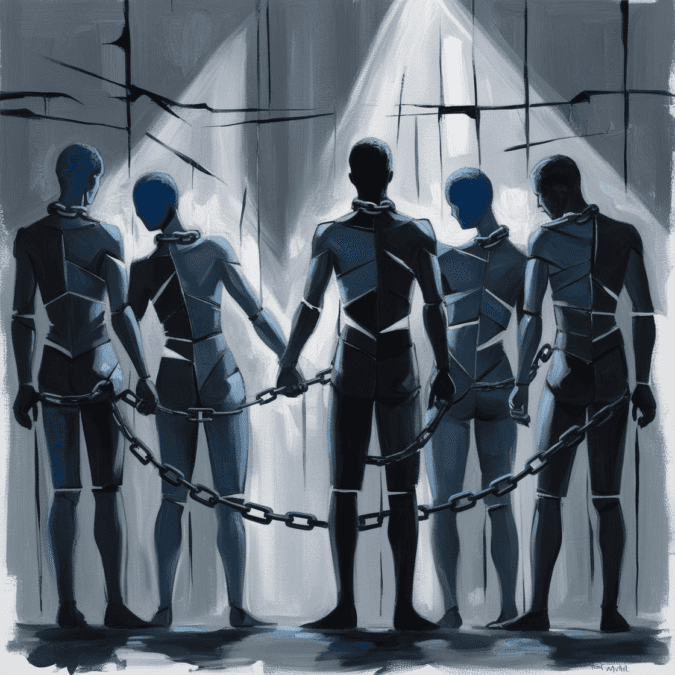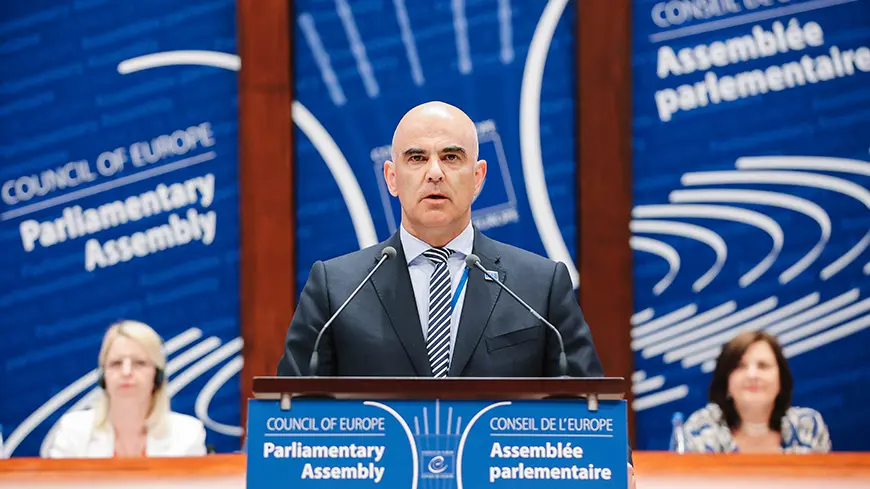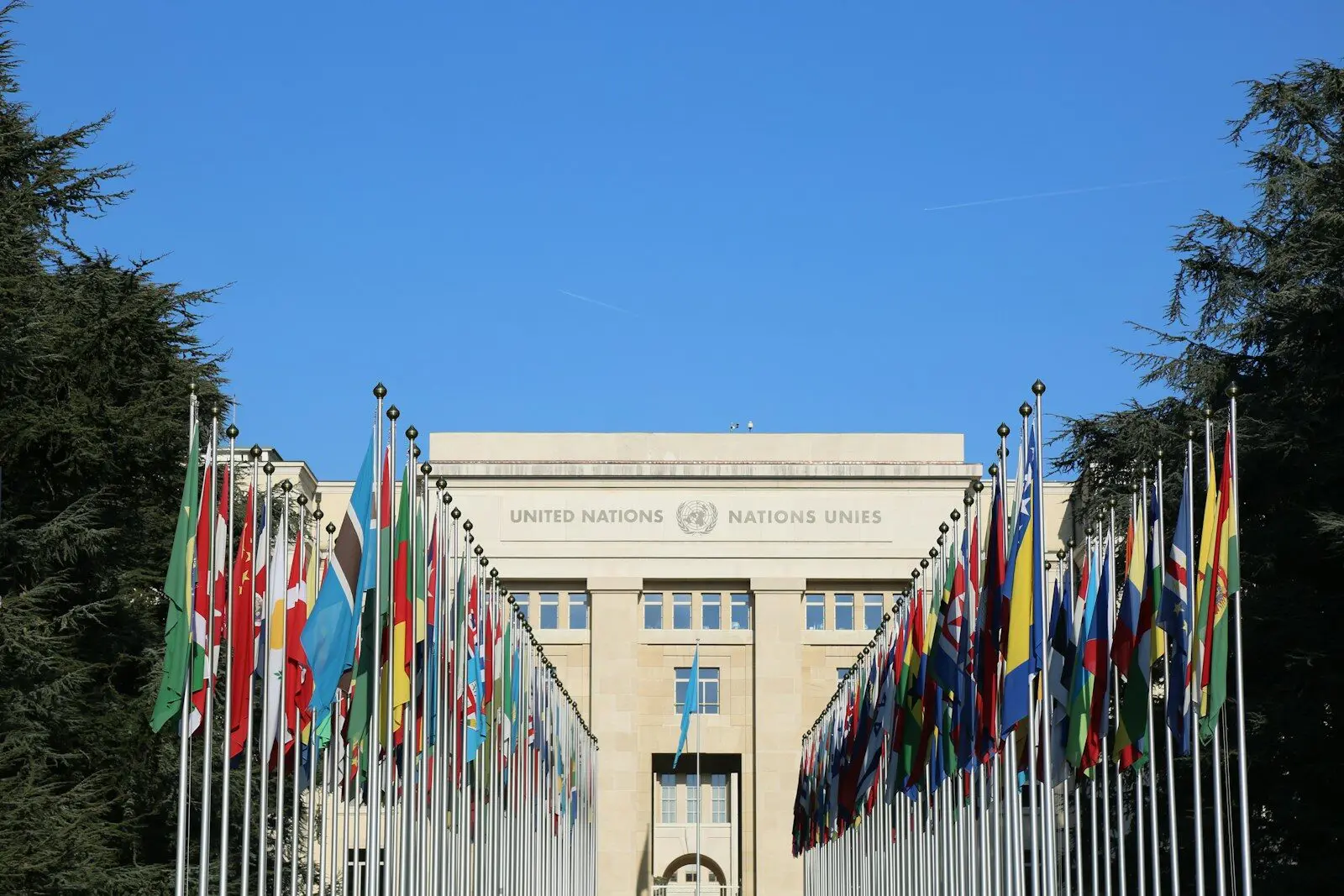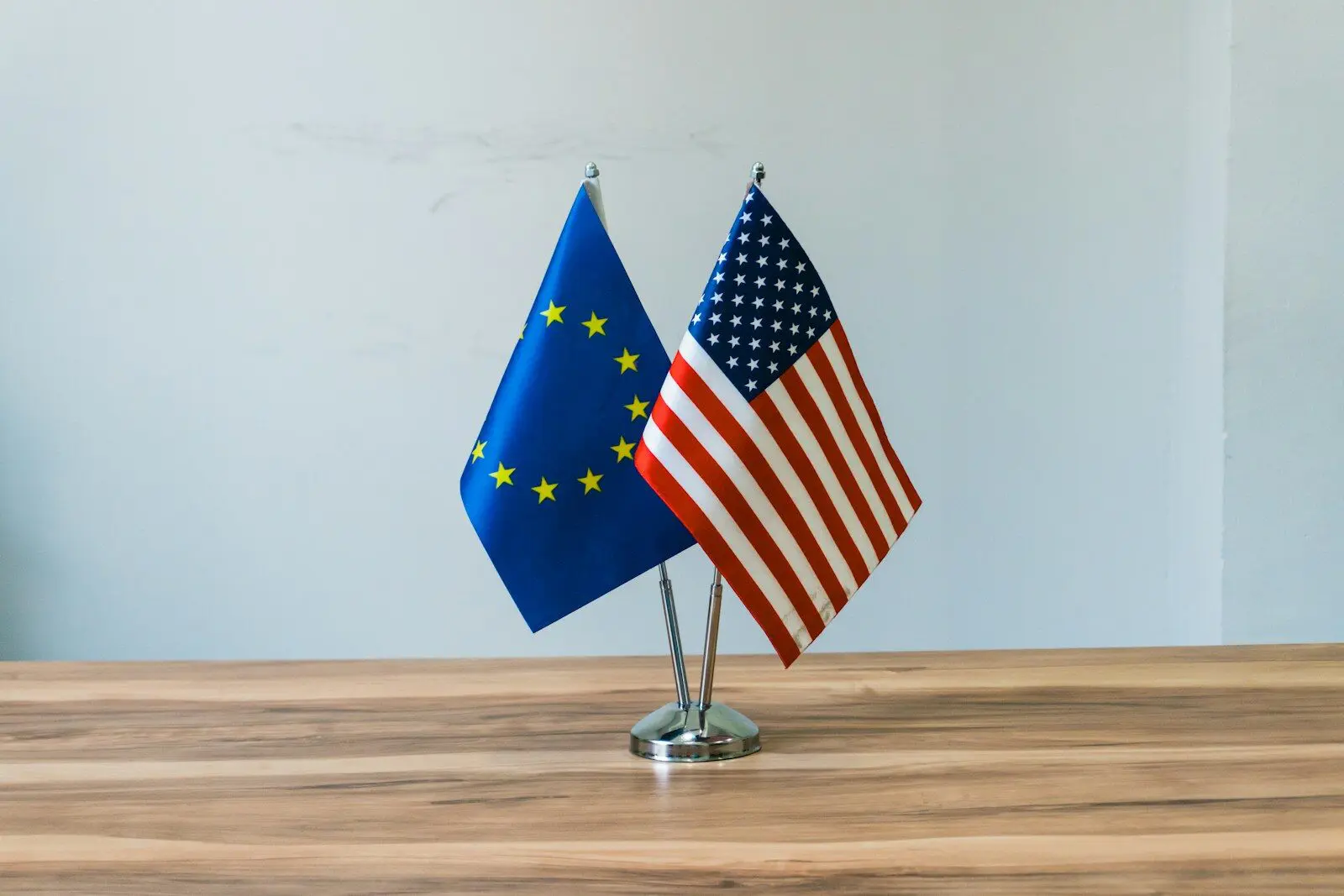Within the labyrinth of family courts, a chilling paradox persists: mothers, who should be lauded for their courage in denouncing the abuse suffered by their children, often find themselves exposed to paroxysmal institutional violence. These women, often referred to as “protective mothers,” see their role as protective parents distorted, and their rights restricted by institutions meant to ensure justice and safety. But how can processes designed to protect sometimes reproduce the very mechanisms of abuse they are supposed to combat—or even generate new ones?
An Intolerable and Systemic Reality
In France, according to the Independent Commission on Incest and Sexual Violence Against Children (CIIVISE), nearly 160,000 children fall victim to sexual violence every year. Among them, a staggering majority (81%) endure abuse within their immediate family. This already appalling reality becomes even more troubling when illuminated by the testimonies of protective mothers. In their attempts to report these crimes and ensure their children’s safety, these women encounter a judicial system where 76% of complaints are dismissed without further action.
An emblematic example is the case of Priscilla Majani, who was convicted of “child abduction” after trying to protect her daughter from a father accused of sexual abuse. Her story highlights the tragic impasse faced by protective mothers: either comply with court decisions they deem unsafe for their children or directly conflict with the law.
A European Crisis: A Widespread, Systemic, and Institutionalized Phenomenon
Spain mirrors similar mechanisms to those observed in France, where mothers denouncing intrafamilial abuse face institutional violence. A recent report by the Council of Europe highlights the psychological torture experienced by these mothers during custody decisions. The concept of “institutional violence,” widely discussed in France, takes on tangible form here. In Spain, the systematic application of the “Parental Alienation Syndrome” (PAS) in family courts continues to discredit allegations of violence, often at the expense of children’s safety. Despite being explicitly rejected by the United Nations, this pseudo-scientific concept is still used to justify forced separations of mothers and their children.
In England, a similar dynamic emerges. A 2021 Women’s Aid investigation revealed that the principle of “contact at all costs” dominates judicial decisions, even when evidence of domestic violence is present. This priority given to maintaining relationships with both parents, regardless of risk to the children, reflects a failure to address trauma in judicial processes. Many families are thus exposed to dangerous situations, perpetuating cycles of control and violence.
In Belgium, the use of parental alienation concepts in courts has also been criticized for lacking scientific grounding. A recent study by the Ligue des Familles highlights the harm caused when this concept is applied indiscriminately in family disputes. Often, it diverts attention from real abuse and places protective mothers in a precarious position, accusing them of influencing their children to harm the father.
The European Parliament recently expressed similar concerns about the impact of domestic violence on child custody decisions. It emphasized the importance of prioritizing the safety of women and children while avoiding the use of scientifically unvalidated concepts like parental alienation to minimize or obscure instances of domestic violence.
The use of Parental Alienation Syndrome (PAS), although scientifically discredited by numerous international institutions, remains a frequent tool in family courts to undermine protective mothers. Developed by Richard Gardner in the 1980s without empirical validation, PAS rests on assumptions that obscure dynamics of power and violence in conflictual separations. It is often invoked to characterize mothers’ protective behaviors as attempts to manipulate their children against the father.
Similarly, the concept of loyalty conflict, as defined by De Becker, is used to pathologize the relationship between a child and their protective parent, particularly in cases of intrafamilial violence. This notion, rooted in systemic theories of the 1970s, lacks rigorous empirical validation. It tends to reduce the child to a passive victim, ignoring their agency and adaptive strategies in hostile environments. This theory shifts the focus from the origins of the mother’s behavior—the violence endured—to interpretations that hold her responsible for familial dysfunction. Consequently, it stigmatizes victims as instigators of relational problems, justifying judicial decisions that often lead to unjustified separations between abused parents and their children. The psychological well-being of both the child and the protective parent, already weakened by violence, is frequently disregarded.
Despite its negative impacts and lack of scientific foundation, this theory was incorporated into the national reference framework published by the French National Authority for Health (HAS), legitimizing its use in institutional and judicial contexts. This highlights the systemic and institutionalized nature of these abuses and the secondary victimization caused by judicial systems.
These scientifically unvalidated concepts often divert attention from the violence suffered by children and protective parents, focusing instead on allegations of alienation or parental manipulation. As a result, they justify judicial decisions restricting mothers’ rights and, in some cases, maintaining contact with abusive parents. The misuse of such notions leads to double victimization: children are forced into dangerous relationships, and mothers are deprived of their protective role due to biased judgments.
Institutional Violence: An Echo of Domestic Abuse
Institutional violence refers to the dynamics of power and control exerted by institutions through practices or policies that, intentionally or otherwise, invalidate victims’ narratives and perpetuate their trauma. Institutional gaslighting, for example, describes a process where victims’ experiences are systematically questioned or minimized, creating an oppressive environment that exacerbates initial suffering. These institutional mechanisms, often invisible, reinforce the abuse patterns already present in family contexts.
Controversial theories, often targeting women in the context of child protection, regularly gain traction under the guise of pseudo-legal psychology. These concepts, lacking rigorous empirical validation, sometimes achieve institutional legitimacy through arbitrary recognition processes. However, it is the legal responsibility of the State to ensure that only scientifically validated theories are employed in decisions affecting fundamental rights. Victims of these practices are encouraged to pursue legal recourse against the State if such unvalidated theories cause harm.
A Form of Psychological Torture
The United Nations, within the framework of the Convention Against Torture, defines torture as “any act by which severe pain or suffering, whether physical or mental, is intentionally inflicted on a person for purposes such as obtaining a confession, punishment, or intimidation.” By this definition, the institutional violence inflicted upon protective mothers aligns with this framework. The prolonged exposure to complex judicial procedures, where their voices are discredited, and their protective efforts criminalized, constitutes a form of psychological torture.
Chilling Statistics and Widespread Impunity
Despite the steady increase in reports of sexual violence against minors—doubling between 2011 and 2021—conviction rates remain alarmingly low: 3% for sexual abuse cases and only 1% for incest cases. Meanwhile, accusations of parental manipulation, often grounded in pseudo-scientific concepts such as the “Parental Alienation Syndrome” or overdiagnoses of Munchausen Syndrome by Proxy, continue to discredit mothers and favor abusers. However, according to a 2001 Ministry of Justice study, false accusations constitute only 0.8% of cases.
In Spain, these dynamics are exacerbated by structural delays in implementing laws that protect victims of intrafamilial violence. Contradictory rulings and inadequate training for judges contribute to a growing climate of impunity.
Failures of Child Welfare: Fabricated Reports and Intimidation
The French child welfare system (ASE, Aide Sociale à l’Enfance), designed to protect at-risk minors, has frequently been accused of abusive practices that exacerbate the suffering of mothers and children. Fabricated or unverified reports are often used to justify the placement of children into foster care without evidence of abuse, as highlighted in a professional statement published on lenfanceaucoeur.org. These reports frequently lead to unjustified decisions to separate children from their families, fostering an environment of fear that deters mothers from reporting abuse out of fear of institutional retaliation.
These severe failures were flagged by the European Court of Human Rights, which condemned France for failing to protect children entrusted to ASE care, including cases where children endured sexual violence. These institutional failings, compounded by a lack of oversight and accountability, leave families vulnerable to a system meant to safeguard them.
The Urgency of Systemic Reform
Given these alarming findings, rethinking the operations of judicial and social institutions is imperative. Several reform proposals emerge:
Mandatory Training: All professionals involved in these cases, from judges to social workers, must undergo comprehensive training on intrafamilial violence dynamics, the impact of trauma, and their cognitive biases.
Ban on Parental Alienation Syndrome: The use of this controversial concept must be banned in family courts, in line with United Nations recommendations.
Independent Oversight Mechanisms: Establish independent supervisory committees to review judicial decisions in cases involving sexual violence against minors. Additionally, to prevent institutional abuses related to ASE and expert witnesses, creating an independent referral service is essential. This service, accessible in emergencies, would be tasked with impartially reviewing reports and intervening promptly to suspend or rectify decisions that perpetuate institutional violence. Such a structure would restore confidence in child protection systems while safeguarding the fundamental rights of children and protective parents.
Enforcing Evidence-Based Practices : the legal framework, intended to guard against harmful practices, paradoxically enables their proliferation through its laxity. Despite substantial evidence demonstrating increased risks of errors and harm associated with the use of unvalidated theories, no explicit obligation exists to ensure the exclusive application of evidence-based methods. Legislating the mandatory use of scientifically validated approaches in all decisions concerning child protection is essential to curtail abuses and ensure the safety of families.
A Collective Responsibility
The media, institutions, and society play a crucial role in ending this modern form of institutional torture. By breaking the silence and amplifying the voices of victims, we can pressure policymakers and demand profound changes.
Every voice matters in this fight for justice. Protecting children and supporting the mothers who defend them must become an absolute priority. Together, we can transform oppressive institutions into steadfast safeguards against all forms of violence.
Sources :
Commission indépendante sur l’inceste et les violences sexuelles faites aux enfants (CIIVISE). (n.d.). Rapport sur les violences sexuelles faites aux enfants en France. Récupéré de https://www.ciivise.fr
Council of Europe. (n.d.). Protecting children’s rights in family court decisions. Récupéré de https://www.coe.int
Women’s Aid. (2021). The Impact of Domestic Abuse on Child Contact Cases in England. Récupéré de https://www.womensaid.org.uk
Ligue des Familles. (2023). L’utilisation du syndrome d’aliénation parentale dans les tribunaux en Belgique : une critique scientifique. Récupéré de https://liguedesfamilles.be
European Parliament. (2021). Resolution on the impact of domestic violence on child custody rights (2021/2026(INI)). Récupéré de https://www.europarl.europa.eu
Gardner, R. A. (1985). Parental Alienation Syndrome and the Differentiation Between Fabricated and Genuine Child Sex Abuse. Cresskill, NJ: Creative Therapeutics. (Note : Mentionnée comme référence historique mais critiquée scientifiquement).
lenfanceaucoeur.org. (n.d.). Tribune contre les placements abusifs en ASE. Récupéré de https://lenfanceaucoeur.org
European Court of Human Rights. (2022). Case Law on Child Protection Failures in France. Récupéré de https://hudoc.echr.coe.int
United Nations Committee Against Torture. (1984). Convention Against Torture and Other Cruel, Inhuman or Degrading Treatment or Punishment. Récupéré de https://www.ohchr.org
Haute Autorité de Santé (HAS). (n.d.). Référentiel national sur la protection de l’enfance. Récupéré de https://www.has-sante.fr
Ministère de la Justice (France). (2001). Étude sur les fausses accusations en matière de violences sexuelles intrafamiliales. Récupéré de https://justice.gouv.fr
Meehl, P. E. (1954). Clinical vs. Statistical Prediction: A Theoretical Analysis and a Review of the Evidence. Minneapolis: University of Minnesota Press.







